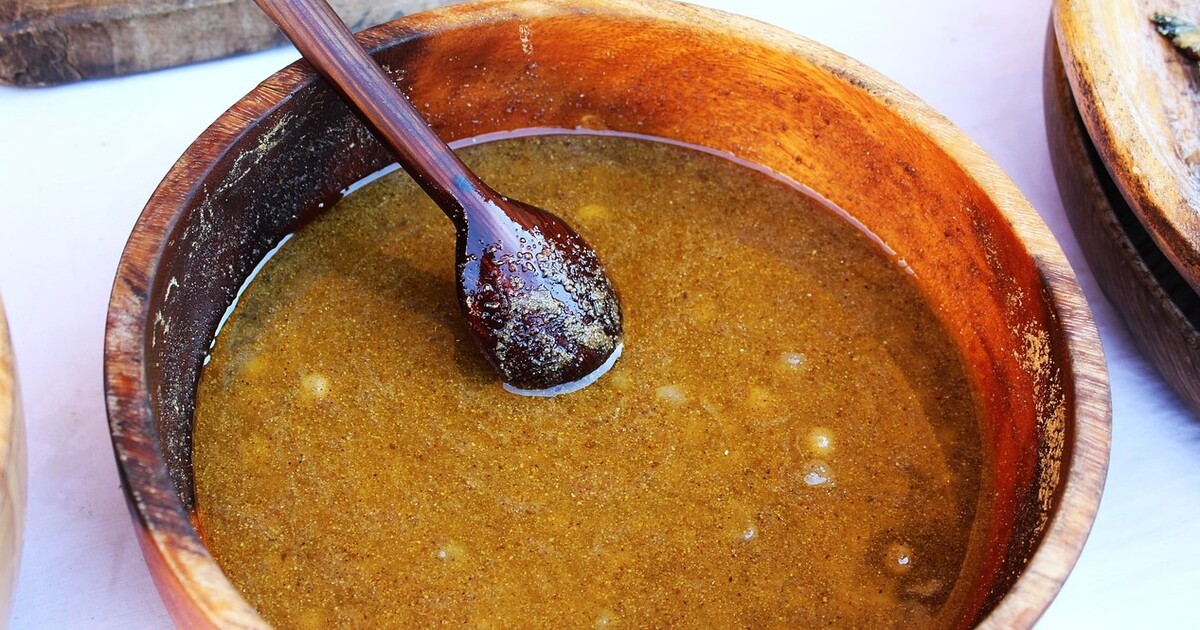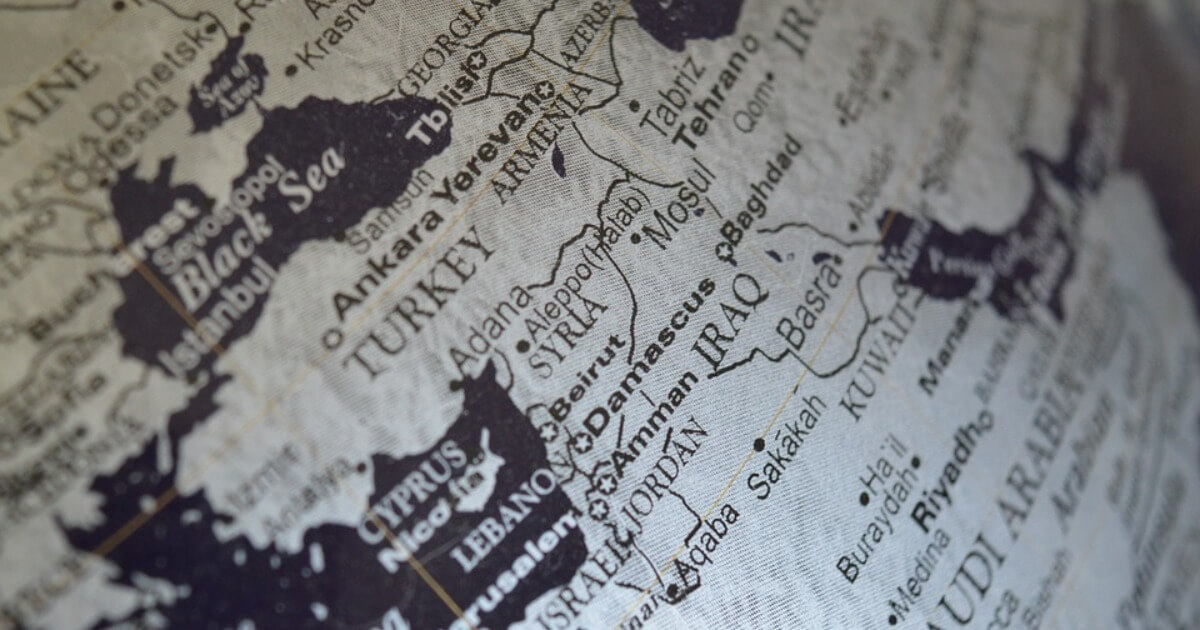Brother, Can You Spare Some Food?
Plus: A recipe for cheap Moroccan-style chickpea soup.
March 30, 2024

The London borough I live in could never be described as deprived. Yet, increasingly, the range of fresh produce in my supermarket has shrunk.
It is not just a loss of food from overseas – no longer stocked because of post-Brexit import taxes, plus the reams of forms now required by the British government for goods to enter the country.
Responsible in part is British farming. In steady decline since its 1995 peak – and now fighting rising fuel and production costs and diminishing financial returns – it cannot step in to cover the loss.
Add climate change
The other threat to our food supply is climate change. We read endless reports of its destructive effect upon wildlife and biodiversity. But what we read less about is its impact upon the crops we grow.
A recent report from Action on Hunger labels eight of them (so far) “endangered.” Read Kate Walker on the depletion of supplies of rice and its effect on the peoples of southeast Asia – where around 60% of daily calories come from rice and, in developing countries like Bangladesh and Sri Lanka, as much as 70%.
The industrial world may be able to substitute other starches for rice without too much discomfort, since it does not constitute a vital staple anywhere from Moscow to Paris, London to New York. But we are losing potatoes to the weather. Maize, too, which feeds people and livestock. Both need a steady supply of water.
Cocoa and coffee are also on the list. Cocoa needs constant conditions to thrive. Yet, Cote d’Ivoire and Ghana in West Africa, responsible for half the world’s production, are experiencing erratic rainfall and winds.
Moving the crops to higher elevations will likely lead to deforestation. Coffee, a crop essential to smallholder farmers, is predicted to decrease 25% in Ethiopia by 2030. How ever will Millennials, summoned to return to work in offices, cope without their cup of java to propel them from their bedroom desks?
Listed, too, are bananas and plantains. Like coffee, they are cash crops. Production of the latter has fallen 43% over the past 20 years, threatened by diseases on the increase through rising temperatures.
On the way out: Bananas and wheat
Before bananas in the wild “go extinct,” as reported in a study published in Frontiers in Plant Science, experts at the Alliance of Biodiversity International and CIAT have been pitched into identifying the genes in the banana’s family tree.
They hope to breed varieties better protected against Panama disease and Fusarium wilt, both increasing in an industry worth $8 billion that produces 100 billion bananas a year.
Wheat, too, is in decline. With enough rainfall, production in cool regions like Europe and the United States may see an increase in yields of 5%. But in nations like India, Central America and Africa, they are predicted to decrease by at least 3%.
While 10% of the world’s supply of wheat comes from Ukraine – where the war looks unlikely to end any time soon – India produces 14%. Loss of production in growing areas now experiencing increasingly hot and dry conditions will have a significant impact on the families growing the grains, and on the millions relying on wheat for sustenance.
Even as crops grow, rising temperatures will lead to increased concentrations of CO2 in the air – which in turn create lower levels of iron, zinc, protein and other nutrients in staples like soy, wheat and rice, leading to malnutrition.
Higher temperatures will not only alter crop yields, but how crops can be stored in increased heat without infestation from pests or mold.
Back to rice
If the planet’s average temperature hits 2.5C/36.5F above pre-industrial levels by the end of the 21st century, half the Mekong delta – the world’s biggest rice exporter – will be under water.
Is it likely any of these populations – reliant on farming for their survival – are going to stay put and watch it happen?
The UK, Europe, and the United States are already struggling with waves of immigration. What will occur when whole nations cannot eat? In the movement of people, we have not seen anything yet.
Struggling to make ends meet
I work wage-free (“volunteer” can be open to condescension) at a food distribution charity. Once providing predominantly raw food, we have been obliged to open a kitchen, since too many recipients of our ingredients – very many of whom have jobs but on minimum wage – can now only afford to turn on a microwave.
Here is a hearty, nutritious soup, with canned vegetables, quickly prepared, appealing to any group of people. It serves 4, but doubled-up allows for food across several days whose flavor can be altered by the addition of different vegetables, spices, fresh herbs or toppings if available.
Cubes of meat or chicken can also be incorporated, frying them just after the onions and garlic, to create a substantial stew. It improves with reheating.
Ingredients
1 tablespoon oil (olive if you have it, vegetable if not).
1 onion, peeled and roughly chopped.
1 large clove of garlic if you have it, peeled and finely sliced.
2 celery ribs, chopped, or half a fennel bulb (optional, but both are often in the “Reduced” crates).
2 teaspoons ground cumin (a supply of cumin, fennel and coriander seed, red pepper flakes is a good investment).
½-1 teaspoon red pepper flakes.
600ml/20 fl oz hot vegetable stock (from a Knorr jellied Stock Pot or cube).
400g/14 oz can chopped plum tomatoes (buy cheaper bashed cans whenever you see them).
400g/14 oz can chickpeas, drained and rinsed (that acquafaba liquid can be made into vegan meringues if you are able to use your oven).
100g frozen broad beans if you own an icebox (canned and drained can substitute).
Salt to taste.
Zest and juice ½ lemon (a teaspoon of vinegar could substitute).
A large handful coriander or parsley (a luxury and optional. A tablespoon on each bowl of labneh or yogurt is a fine alternative or addition if you have any).
Method
Heat the oil in a large saucepan. Saute the onion, garlic and celery over medium-low heat until softened, stirring frequently. Stir in the cumin and red pepper flakes, and saute one minute more.
Raise the heat, then add the stock cube and 600ml/20 fl oz water, tomatoes and chickpeas. Simmer about 8 minutes.
Add the broad beans and lemon juice and cook for 2 minutes more. Season with salt to taste (the stock cube is salty). Top with lemon zest, chopped herbs or yogurt.
Takeaways
One of the consequences of Brexit is a loss of food from overseas in the UK. The other threat to the Uk's food supply is climate change.
We read endless reports on the destructive effects of climate change upon wildlife and biodiversity. What we read less about is its impact upon the crops we grow.
Depletion of rice supplies has enormous effects on the peoples of southeast Asia – where around 60% of daily calories come from rice. In developing countries it is as much as 70%.
Rising temperatures will lead to increased concentrations of CO2 in the air, which in turn create lower levels of nutrients in staples like soy, wheat and rice, leading to malnutrition.
The UK, Europe and the U.S. are already struggling with waves of immigration. What will occur when whole nations cannot eat?

